What Happened This Week?
Remember last week when we predicted that the birth of Bortus’ female child would have major repercussions on the next episode? Well, here we go. In just the third episode of this young series, The Orville 103 – About A Girl, creator Seth MacFarlane and his writers took on a myriad of social issues all at once.
What’s New This Week?
New Characters
In Bortus (Peter Macon), we found a being with conservative values, at least originally. Like many people raised in a certain society, Bortus believed what he was taught. He thought reassigning his baby’s gender to be the “right” thing to do according to deeply entrenched values shared by all (or close to it) Moclan people. Bortus, however, possesses an open mind still capable of learning and adaptation. As he demonstrated in the pilot, when he allowed Malloy (Scott Grimes) to use non-standard, donkey-hugging maneuvers to save their lives, Bortus takes a given situation, weighs it against his experience, and looks for new answers if his experience proves too limiting. We know a few people IRL that could profit from adopting THAT trait.
Klyden (Chad Coleman), on the other hand, brings an alternative perspective. At first, we believe he’s simply conservative and just goes along with popular opinion on the matter. Later, we learn that he too was born as a female until his parents arranged for his own gender reassignment. Instead of believing what his society taught him, he knows, down to his core, that the life he’d led up to that point would not have been possible as a female Moclan. He values his life and what he’s achieved in life. He simply can’t look at the situation any other way. During the tribunal, when Ed brings the female Moclan out of hiding, she more or less confirms Klyden’s beliefs; he would have led a very different and lonely life had he remained female. (Not necessarily a bad life, just different.)
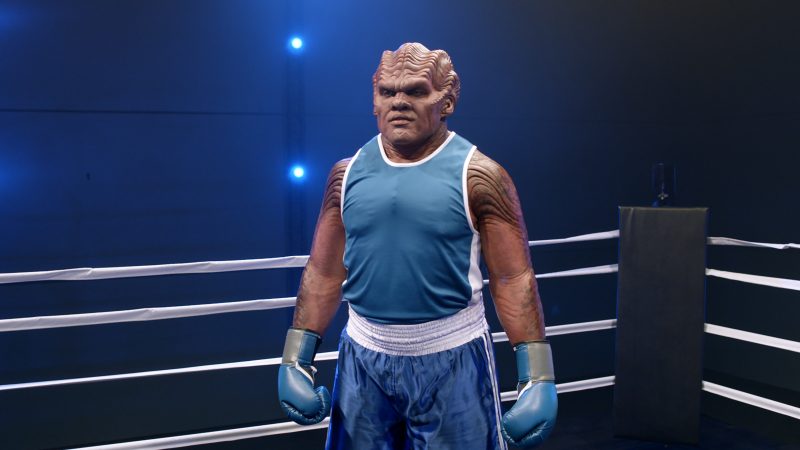
We also got to see a little bit more of Yaphit, the amber blob alien voiced by Norm MacDonald. So far, we have no idea what function Yaphit serves on board the ship. His scene portrays Yaphit as perhaps the ship’s most open-minded sentient. Dr. Finn (Penny Johnson Jerald) sees through Yaphit’s constant trips to sickbay as some kind of ruse. When confronted, Yaphit admits he wants to ask the doctor out on a date. When she refuses, in an action that leaves me wondering what the FOX standards and practices department considers “obscene”, Yaphit projects a phallus-like tentacle to entice the doctor. Um, yuck. Apparently, sexual harassment in the workplace has taken a few steps backwards in the future.
New Aliens
Although we’d already met Moclans Bortus and Klyden, this episode dives DEEP into the Moclan race and their core values. We already knew the race consisted only of males. We learned this week that females are born infrequently, rather than never. This revelation changed our opinion of the race: they’re all male because they choose to be all male. Whenever parents have a female baby, societal norms demand the baby undergo gender reassignment surgery. Deep-seated beliefs among the Moclan people make them very prejudiced against females as lesser versions of males. This attitude carries over into their treatment of females of their own species.
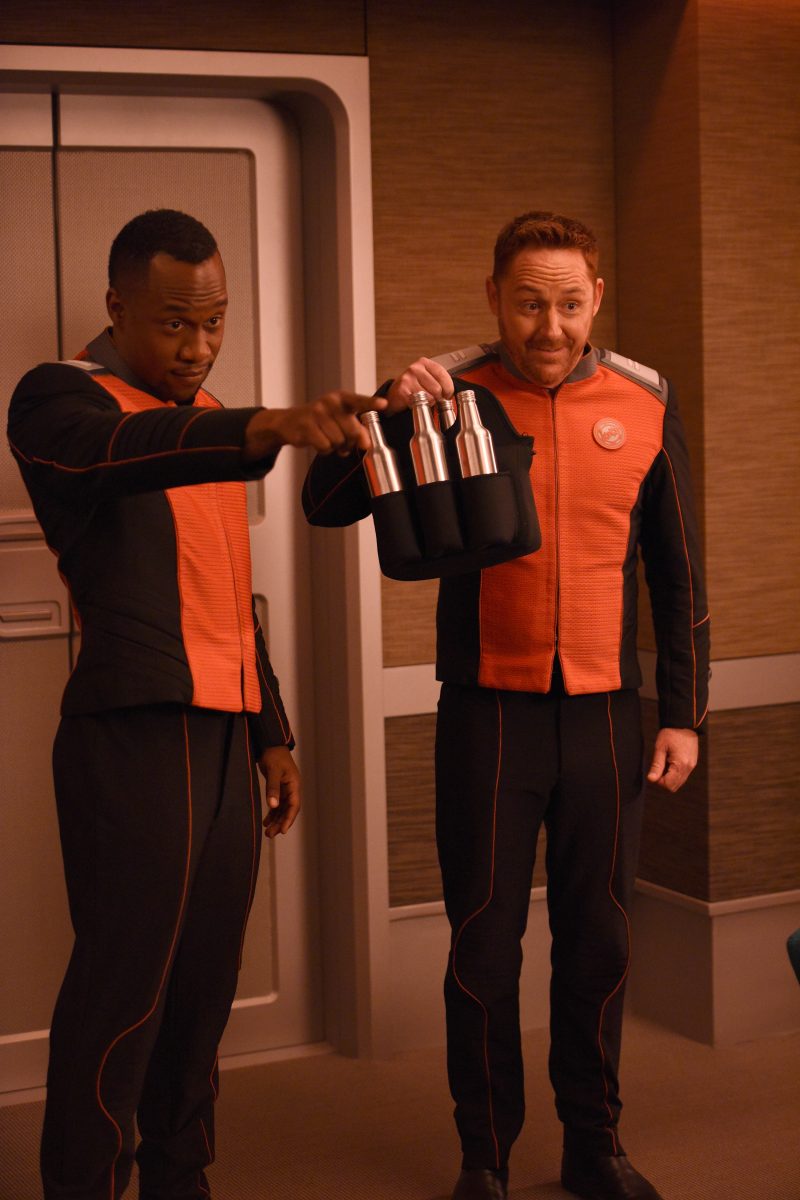
During the crew’s shuttle ride to the surface of Moclus, we learned the planet is heavily industrialized, primarily as weapons manufacturers. We think the writers want viewers to draw conclusions like the Moclan people probably value physical strength and the ability to wage war, historically considered more masculine traits.
New Technology
Last week, we openly wondered if the ship’s replicators produced anything other than alcohol and pot-brownies. This week we saw them produce regular coffee, clothing, and other items. Also, the ship used a “shover” beam to nudge an asteroid off its path to save a planet from cataclysm. I’m sure Malloy was just being cute and calling the tractor beam a “shover” beam, but maybe not. Either way, we know the ship can both push and pull things out in space.
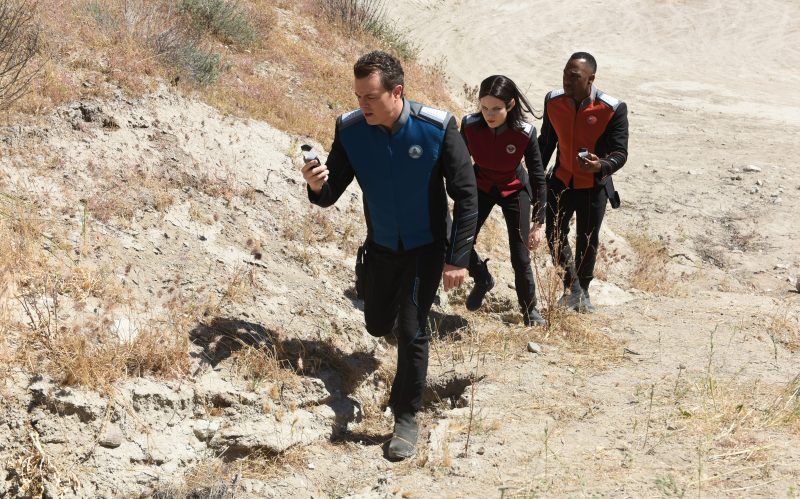
How Was This Episode?
Many viewers will find this episode challenging. We imagine some viewers may decide to give up on this show following this episode. Again, we think you should keep giving this show a chance to develop. If you came to this show thinking Seth MacFarlane is trying to make a Star Trek spoof, you misread the situation. MacFarlane is making a Star Trek homage and doing it the only way he can: by inserting dick jokes along the way.
As Orville fans knowledgeable about Star Trek, we’ve already seen certain story elements referenced in previous episodes. Check out our earlier podcasts (101, 102) and reviews (101, 102) for more on that. The ambitious MacFarlane clearly wants to make the Orville as socially relevant now as the original Star Trek was in the 60s. Casual fans my not know it, but the original Trek tackled issues like sexism, racism, and militarism during its run in much the same way The Orville did here.
Here’s the formula:
- Take an issue affecting people in the here-and-now.
- Apply it to an alien race.
- Have humans, supposedly now enlightened from having been born several hundred years into our future, look on.
- Make viewers look at a social problem with a new perspective.
Sound familiar?
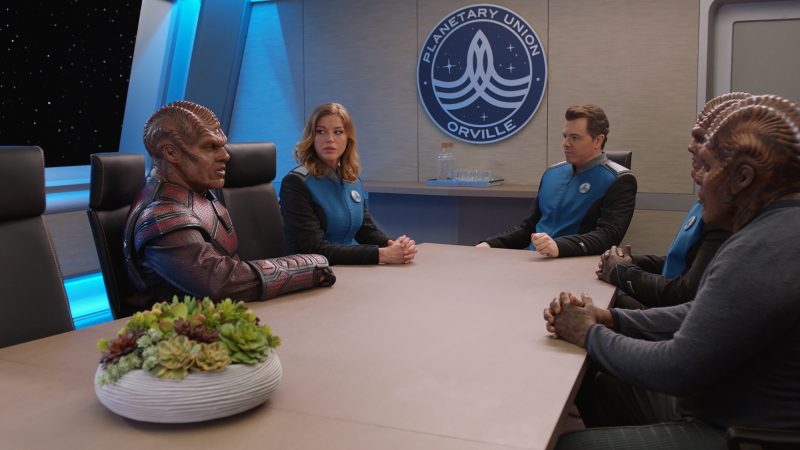
edit
Star Trek Parallel
Did you know the original Trek depicted the first interracial kiss on television? It took the mind control of a psychically superior race to make it happen, but Captain Kirk kissed his communications officer Uhura and made television history. Today, television audiences can expect to see anyone kissing anyone else anywhere, any time of day, but back then it just didn’t happen on TV. Although the original Trek struggled in addressing feminism (largely ignoring the issue), it attacked racism several times throughout its run.
The best example of Trek using the formula described above occurs in the episode entitled Let That Be Your Last Battlefield. In that episode, the crew encounters two people from the same planet locked in an eternal struggle to kill each other. One of them is white on the left side of his body and black on the other. The other is black on the left side of his body and white on the other. Through the eyes of the crew, viewers can’t tell any difference between the aliens. Between each other though, they both have been raised to despise and eradicate members of the other “race”. Although the parallel gets altered to address sexism and many other layered issues instead of racism, we believe MacFarlane patterned this episode off this fan-favorite.
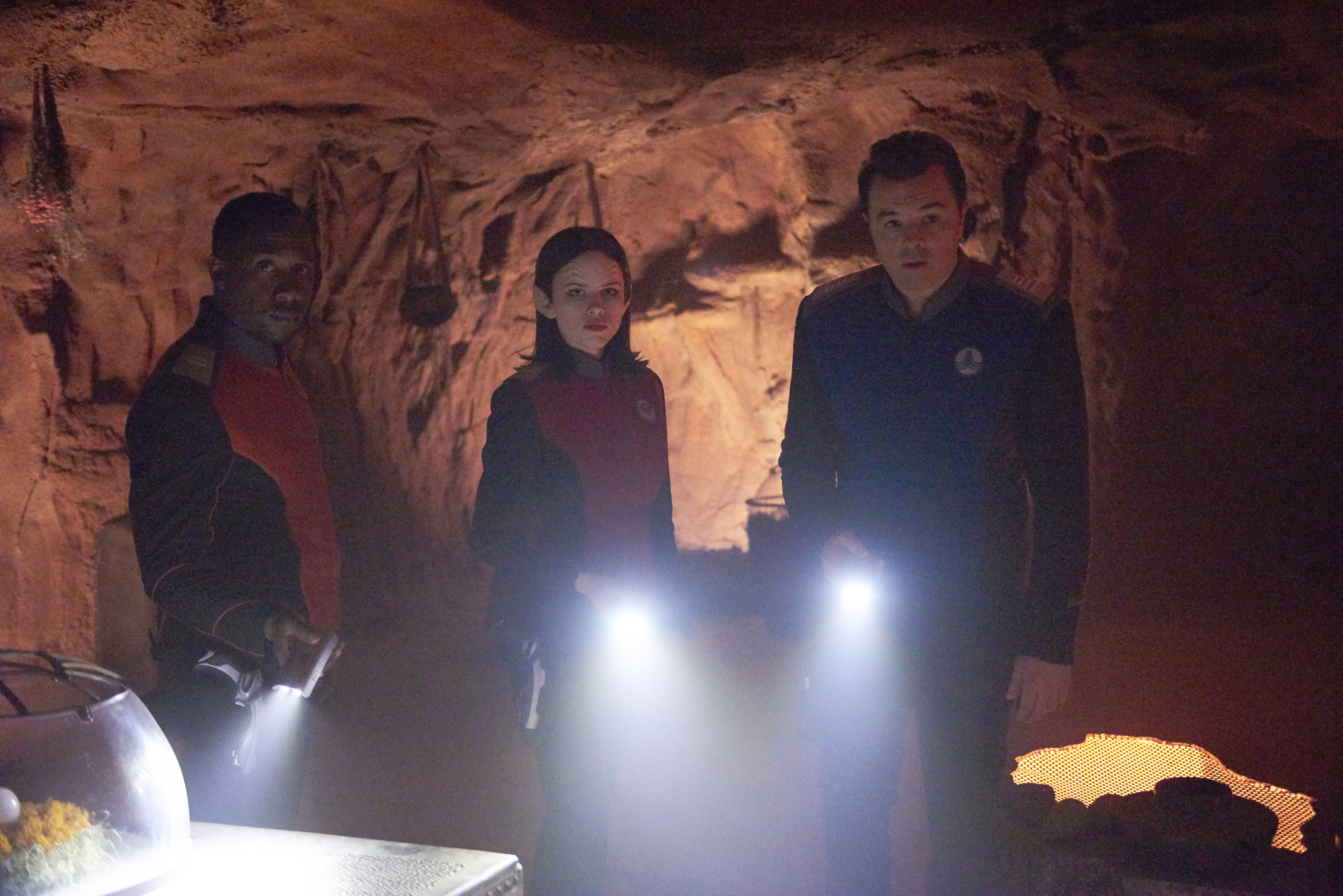
But Does It Work?
Mostly, yes, it does. The episode’s main shortcoming stems from the kitchen-sink approach it took. When our reviewing team tried to describe the exact issue The Orville wanted to comment on, we had trouble. Yes, sexism plays a big part, but one could argue that differences in general take center stage. While in the context of the episode, the crew uses any topic they can think of to try and change Moclans’ minds. In the context of the story, they muddy the issue they want to make a point about by mentioning a laundry list of modern social shortcomings and beliefs. They use anything they can to make their point. When we looked deeper into the writers’ intent, tolerance for others’ differences emerged as a “catch-all” message.
The part that probably left most Trek fans, not to mention most non-Trek fans, unhappy with the episode revolved around the tribunal’s ultimate decision and the fate of the baby. Most fans associate Star Trek with a Utopian society where prejudice gives way to fairness, so we won’t fault Orville fans for falling into that trap. You probably expected the tribunal to see the truth of Kelly’s (Adrianne Palicki) argument. We did. Change has to start somewhere, but can the audience really expect it start just because we’re there to see it? And on the movement’s first attempt? The Moclans delivered a verdict consistent with any society with strong beliefs; they stuck with the status quo. Disappointing? Yes. Surprising? In that moment, yes. Believable? Unfortunately, yes.
As parents of special needs children, we understand better than most the need for society’s need for greater empathy where differences are concerned. Can a show effectively make a plea on behalf of those in need while delivering a few dick jokes? For the most part, yes it can. It risks losing viewers when it does so, but MacFarlane has been walking that line with some success for years now.
Visit the official The Orville website, Facebook page, and Twitter account.
Follow us on Twitter: @DaleyReview and @so_many_shows
Check out The Daleys on their own website: www.DaleyReview.com.
Like us on Facebook or Subscribe for instant notice of new posts.
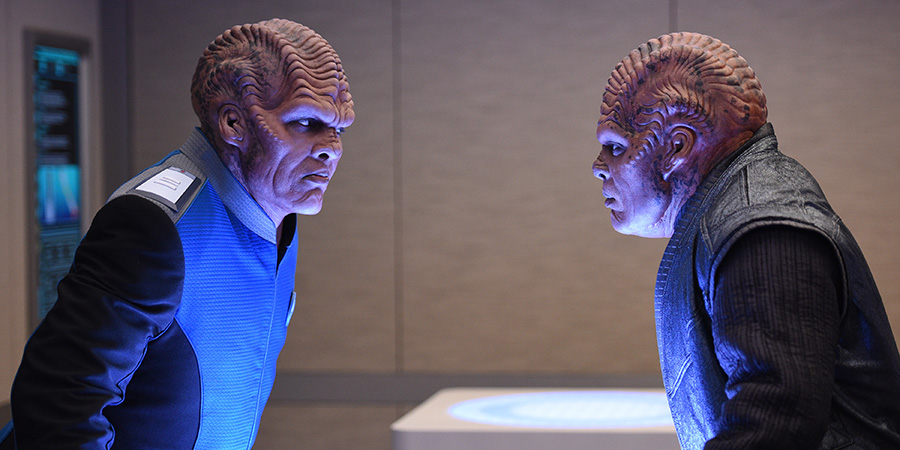
This episode reminded me of a TNG episode where Riker falls in love with a no gender person who secretly identified as female. But that person’s home race takes them and ultimately sends them to no gender camp. So like this episode in the end the cultural norms of that society won.
Thanks for writing in! I’ve gotten that feedback on Facebook and I’m sure you’re right. It looks like it’s not just TOS Seth will pull inspiration from for the Orville… I better brush up on my TNG…